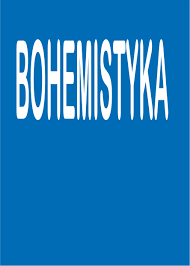Polski leksem »zakonnik« w »Biblii gdańskiej« (1632) a czeski leksem »zákonník« w »Biblii kralickiej« (1579–1594).
The Polish lexeme »zakonnik« in the »Gdansk Bible« (1632) and the Czech lexeme »zákoník« in the »Kralice Bible« (1579–1594).
A case study in the context of the issue of the lexical filial relation between Polish and Czech renderings.
Author(s): Tomasz LisowskiSubject(s): Language and Literature Studies, Theoretical Linguistics, Applied Linguistics
Published by: Uniwersytet Adama Mickiewicza
Keywords: Renaissance biblical renderings; the Gdańsk Bible (1632); the Kralice Bible (1579–1594); lexical filial relation; Polish and Czech equivalents of the Greek íďěéęüň; criterion of semantic
Summary/Abstract: Daniel Mikołajewski, translator of the Evangelical Gdańsk Bible (1632), in his translation work used the Czech Kralice Bible (1579–1594) as an auxiliary source. In the context of the issue of the lexical dependence of the Gdańsk rendering from the Kralice rendering, the equivalents of the Greek íďěéęüň ‘an expert in Jewish Law’ were analyzed. When selecting Polish lexical equivalents, Daniel Mikołajewski took into account the contextual meaning of the original lexeme and was guided by the criterion of semantic and morphological compatibility of Polish lexical equivalents with their Greek counterpart. Those are zakonnik i nauczony w Zakonie. They reflect properely the equivalents quoted in parallel verses in the Kralice Bible, i.e. zákonník, učený v Zákoně. As a comparative background, the analysis also includs the equivalents of the Greek ăńáěěáôĺýň ‘a man learned in the sacred writings’. In this case, Daniel Mikołajewski opted for a Polish equivalent that meets the criterion of semantic and morphological compliance, i.e. nauczony w Piśmie. The translators of the Kralice Bible, on the other hand, used the equivalent of zákonník, which is semantically, but not morphologically (etymologically) adequate. The presented case study shows Daniel Mikołajewski as an autonomous translator, critical of the Czech auxiliary source.
Journal: Bohemistyka
- Issue Year: XXII/2022
- Issue No: 3
- Page Range: 393-412
- Page Count: 20
- Language: Polish

